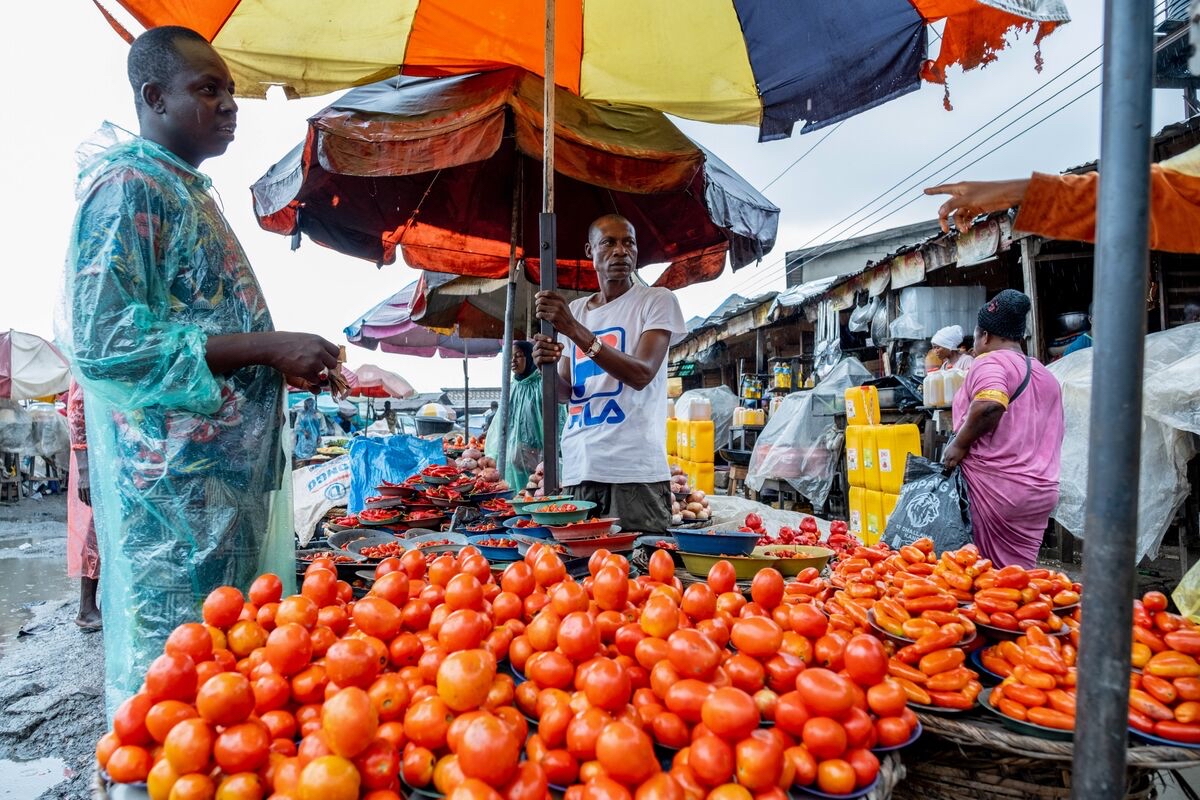Over 65% of Nigerians are skipping healthy meals due to financial struggles—a statistic that paints a dire picture of the country’s economic reality. Behind this figure lies a story of rising costs, dwindling incomes, and systemic challenges that demand urgent action. As food inflation soars and household incomes dwindle, millions are grappling with the difficult choice between basic sustenance and nutritional value.
The Rising Cost of Living
Nigeria’s persistent inflation and economic instability have driven up the cost of living, particularly for food. Key factors contributing to this crisis include:
1. High Food Inflation:
In October 2024, food inflation surged to 33.88%, one of the highest rates in the past decade. Staple foods such as rice, beans, and vegetables have become increasingly unaffordable for low-income households.
2. Supply Chain Disruptions:
Flooding, insecurity, and inadequate infrastructure have disrupted agricultural supply chains, driving up the cost of locally produced food. For instance, the recent flooding in key agricultural zones reduced output by 15%.
3. Exchange Rate Volatility:
The devaluation of the Naira, trading at record lows of ₦1,750 to $1 on the black market, has significantly increased the cost of imported food items, further limiting access to nutritious meals.
Impact on Households
The consequences of rising food costs are severe, affecting both physical health and overall well-being:
1. Nutritional Deficiency:
Many households are resorting to cheaper, less nutritious food options, leading to widespread malnutrition, particularly among children. UNICEF estimates that 2.5 million Nigerian children suffer from severe acute malnutrition annually.
2. Increased Health Risks:
Poor diets heighten the risk of chronic illnesses such as diabetes, hypertension, and stunted growth in children, potentially overburdening the healthcare system.
3. Social Strain:
Financial struggles are creating stress and reduced quality of life, exacerbating mental health issues and straining family relationships.
Why Are Households Struggling?
Several factors contribute to the financial struggles faced by Nigerian households:
1. Inflationary Pressures:
Inflation has eroded the value of wages, leaving households unable to keep up with rising costs.
2. Unemployment and Underemployment:
Despite government efforts to create jobs, unemployment rates remain high, with many Nigerians earning below the minimum living wage of ₦30,000 per month.
3. Economic Reforms:
Policies such as the removal of fuel subsidies and currency unification, while aimed at long-term economic stability, have had immediate adverse effects on household incomes.
Government Response and Interventions
In response to the growing crisis, the government has introduced several measures:
1. Social Welfare Programs:
Initiatives such as conditional cash transfers and food assistance programs aim to provide short-term relief to vulnerable Nigerians. However, questions remain about their reach and effectiveness.
2. Agricultural Investment:
The government has increased subsidies for farmers and launched incentives to boost local food production. For example, the ₦15 billion Agricultural Productivity Fund aims to stabilize food prices in the long term.
3. Minimum Wage Reforms:
Calls for a minimum wage increase to reflect the current cost of living are gaining traction, with labor unions demanding a raise to ₦50,000 per month.
Voices from the Ground
The human toll of this crisis is reflected in the stories of everyday Nigerians:
• Maryam Abdullahi, a teacher in Kaduna, shared her struggle:
“I used to buy fresh vegetables and fish weekly, but now it’s just rice and beans. My children miss eating fruit, but we can’t afford it anymore.”
• Ifeanyi Nwosu, a mechanic in Enugu, said:
“The price of everything has gone up—food, transport, even school fees. I’m working harder than ever, but it’s still not enough to feed my family properly.”
• Bola Akinyemi, a small business owner in Ibadan, noted:
“Customers are buying less because they’re prioritizing essentials. I’ve had to cut back on my own meals just to keep my shop running.”
Long-Term Implications
If the trend of skipping healthy meals continues, Nigeria could face significant long-term consequences:
1. Declining Workforce Productivity:
Malnutrition and poor health will reduce productivity, hindering economic growth.
2. Generational Health Issues:
Poor nutrition among children could have lasting impacts on their physical and cognitive development, perpetuating cycles of poverty.
3. Widening Inequality:
The inability to afford basic necessities deepens the divide between rich and poor, fueling social unrest.
What Can Be Done?
To address this growing crisis, coordinated efforts are needed from the government, private sector, and civil society:
1. Immediate Relief:
Expand food assistance programs to ensure vulnerable households have access to nutritious meals.
2. Inflation Control:
Implement policies to stabilize food prices, such as subsidizing agricultural inputs, improving supply chain infrastructure, and promoting food storage facilities.
3. Economic Empowerment:
Focus on creating sustainable jobs and supporting small businesses to boost household incomes. Programs like microcredit schemes could empower low-income families.
4. Public Awareness:
Educate households on affordable, healthy eating practices to maximize nutritional value within limited budgets.
Conclusion: A Call for Action
The inability of 65% of Nigerians to afford healthy meals is not just a household issue—it is a national crisis. Tackling this problem requires urgent, multi-sectoral intervention. By scaling up food assistance, stabilizing inflation, and empowering households economically, Nigeria can address the root causes of food insecurity. With the right policies and investments, the country can ensure that its citizens have access to the nutrition they need for a healthier and more prosperous future.
